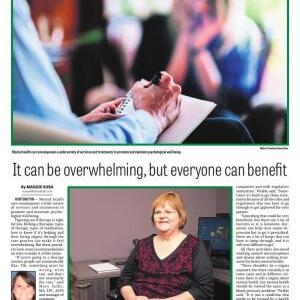If you rely on Medicaid for your health care, or you know and love someone who does, you����ֱ���ve almost certainly heard about the massive cuts Congress made to the program.
A new law makes the biggest .
Nearly health insurance over the next decade, according to an estimate by KFF, a health analysis and news nonprofit.
Congress passed the ����ֱ���Big Beautiful Bill����ֱ��� last month, but your ability to get treatment won����ֱ���t end right away. People will lose care more gradually. Here is how and when the changes are expected to affect you.
Who relies on Medicaid in West Virginia?
Say you work a low-paying job and your employer doesn����ֱ���t offer health insurance.
Or maybe you live in an isolated part of the state to be close to family, so you work odd jobs to get by.
You may be someone who uses Medicaid because you����ֱ���re too disabled to work, someone who spends all your time caring for a family member or someone in active addiction.
One in ten West Virginians who receive Medicaid is likely to lose coverage over the next decade.
Just over 500,000 state residents have Medicaid as of this month, according to the state Department of Human Services.
How did the new law change Medicaid?
Congress made the in two ways.
Medicaid is a matching government program, meaning it����ֱ���s partially funded by the state and partially by the federal government.
When President Donald Trump signed the bill into law last month, the federal how much it will give states for Medicaid.
As states receive less money, they will be forced to stop paying for some of your care.
In addition, the law requires you to prove that you are working to qualify for Medicaid based on income.
Medicaid historically covered people for reasons like old age, illness or pregnancy. In 2014, officials expanded the programs to cover people based on income alone.
In West Virginia, about one third of Medicaid recipients, 165,000 people, are covered because they����ֱ���re considered low-income.
Kelly Allen, executive director of the West Virginia Center on Budget and Policy, noted state health officials will ultimately determine how you����ֱ���ll demonstrate you����ֱ���re eligible, such as by providing a W2 or paystub.
You could lose coverage if you are working but aren����ֱ���t able to prove it.
The law states that you don����ֱ���t have to meet this work requirement if you����ֱ���re:
- Caring for kids 13 and under or for disabled family members
- Pregnant or receiving postpartum Medicaid coverage
- Disabled
- Medically frail
- Have a substance use disorder
- Have a disabling mental disorder or serious and complex medical condition
- A former foster youth
But you could lose coverage if you can����ֱ���t prove you meet those exceptions, and states are given discretion to refine the definitions of terms like ����ֱ���medically frail����ֱ��� and ����ֱ���complex medical conditions.����ֱ���
����ֱ���We don����ֱ���t know what that����ֱ���s going to look like yet, whether that����ֱ���s a doctor����ֱ���s visit, a doctor����ֱ���s note, or proof of being in regular treatment,����ֱ��� Allen said.
2026
Next year, the state will receive less money for Medicaid, and cuts incrementally increase until 2034.
Health analysts predict state officials may first cut some of your Medicaid services.
For example, other states when facing tough budget years.
West Virginia officials could choose to cut some other state services to divert money to Medicaid.
But in January, your representatives in the state Legislature won����ֱ���t have as much money to allocate due to other costs, including tax cuts, the Hope Scholarship and the rising cost of the state health insurance program, PEIA.
And if you or someone you love experience addiction, you should know West Virginia lawmakers of medication for fentanyl and other drug cravings.
2027
The biggest coverage losses , when Medicaid work requirements begin. But states can start work requirements a year sooner or a year later with federal permission.
If you����ֱ���re 19-64 years old and enrolled in Medicaid for low income, you must prove you work, volunteer, participate in a work training program or perform some combination of those activities for at least 80 hours per month. You may also go to school half-time.
You might lose coverage because you can����ֱ���t find a job or can����ֱ���t pay for a vehicle to get to work.
If you����ֱ���re on Medicaid based on your low income, you����ֱ���ll also face two additional challenges in 2027.
The state will require you to prove you����ֱ���re eligible for coverage every six months instead of every year, which current law requires. So if you move, or you����ֱ���re evicted and become homeless, you could lose care if the state can����ֱ���t contact you.
Medicaid currently pays for health care costs you had up to three months before you enrolled. In 2027, pre-enrollment coverage will decrease to one month.
2028
The state may start charging you up to $35 for some services and would be permitted to deny care if you can����ֱ���t pay.
So you might not be able to pay for a visit when you����ֱ���re behind on bills or need groceries.
2029-2034
As states lose more and more Medicaid funding , the Georgetown Center for Children and Families estimates that by 2034, .













